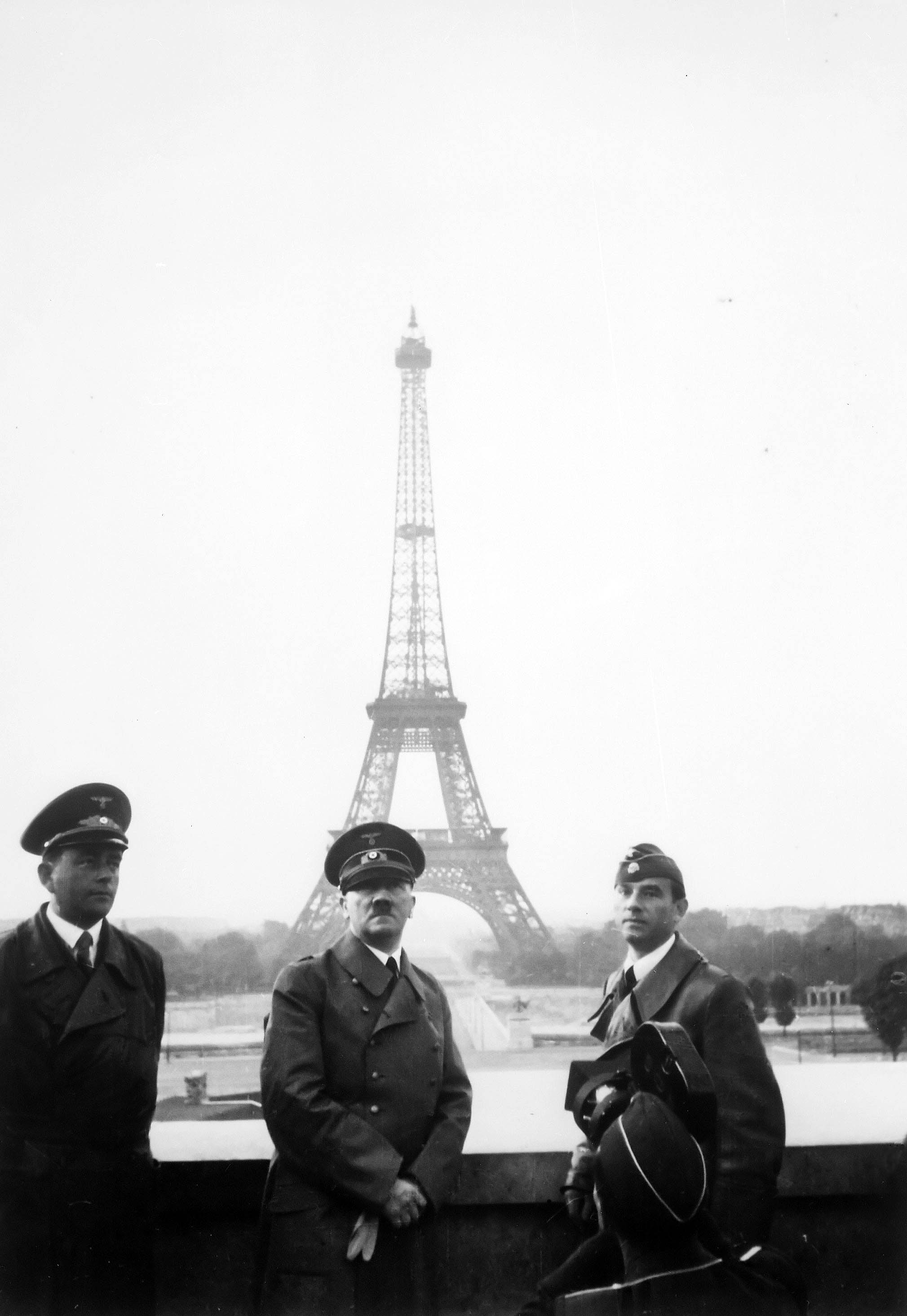It happened today - June 23, 2015
 If you’ve seen that iconic image of a gloating Hitler in front of the Eiffel Tower you know what happened on this date back in 1940. The Nazi tyrant made his only visit to Paris and did the world a curious favour by creating such searing, lasting images of the sudden collapse of civilization before frenzied barbarism. Yes, it really could happen and yes it would matter if it did.
If you’ve seen that iconic image of a gloating Hitler in front of the Eiffel Tower you know what happened on this date back in 1940. The Nazi tyrant made his only visit to Paris and did the world a curious favour by creating such searing, lasting images of the sudden collapse of civilization before frenzied barbarism. Yes, it really could happen and yes it would matter if it did.
Actually Nazism was even worse than barbarism. In Hitler’s philosophy, and yes he had one, there was something far more perverse, cruel and decadent than the savage vigor of Huns or Vandals. Not that you’d want to be caught by a bunch of them on a rampage either. But Nazism was the product of an advanced culture and economy, capable of exterminating millions through sophisticated railroad logistics and industrial chemistry and Nazi potentates stole and savored advanced art rather than just smashing it or setting it on fire. In some sense the Huns didn’t know better. The Nazis knew it, and rejected it proudly.
Incidentally while in Paris Hitler visited Napoleon’s tomb and commented as he left it “That was the greatest and finest moment of my life.” Like a surprising number of admirers of the Corsican tyrant and military genius, Hitler didn’t seem to notice that Napoleon actually lost. But that’s not the main thing.
The main thing is that pictures of Hitler strutting amid the shattered ruins of “decadent” French democracy are worth thousands of words about how getting too caught up in petty partisanship, evolving exotic theories of “rights”, obsessing over minor flaws in one’s own culture, transvaluing all values and succumbing to moral relativism and its grotesque loss of proportion in geopolitics can hollow out open societies blithely convinced of their own superiority and unwilling to listen to criticisms from those on solid mental and moral ground until the panzers squash them as they protest, gesticulate and deconstruct patriarchal narratives of hegemonism.
It’s an argument that needs to be made every generation or so because malice, like ignorance, is a renewable resource. But it’s some considerable help, oddly enough, in making the argument to be able to display pictures of Hitler in Paris and ask whether the possibility of a modern equivalent isn’t sufficiently plausible and sufficiently grim as to demand our consideration.